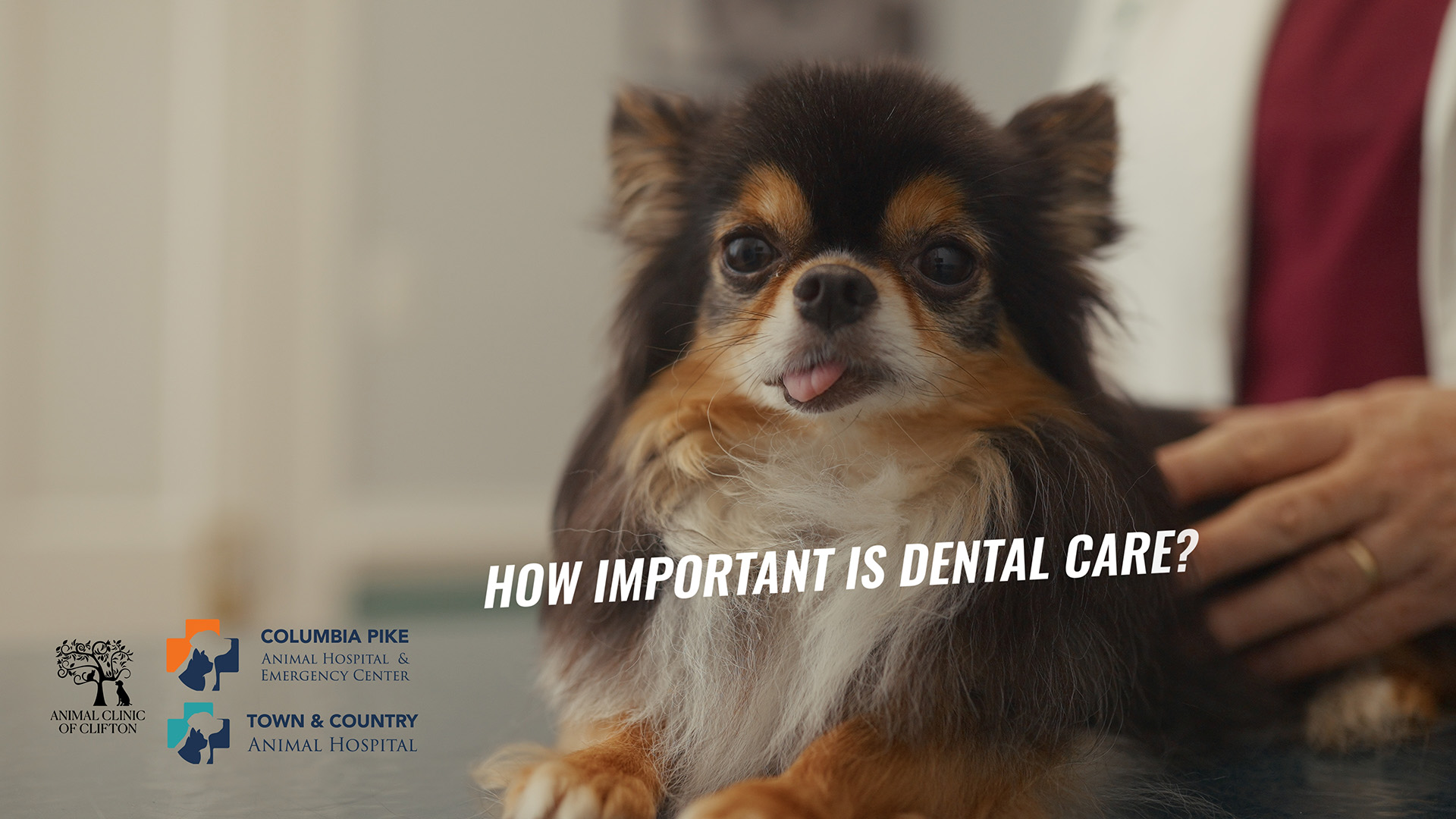As our dogs age, their needs change. Just like people, senior dogs face new health challenges, and staying ahead of them can make all the difference in helping your best friend live a long, happy, and comfortable life. In this first part of our Senior Dog Care series, Dr. Nancy Barnett shares what every pet parent should know about caring for older dogs.
When Does a Dog Become a Senior?
There is no single age that defines “senior” for every dog because it depends on size and breed.
-
Small breeds: often live well into their teens and may not show signs of aging until 12 to 15 years old.
-
Medium breeds: typically reach senior status around 7 to 10 years and live to about 13.
-
Giant breeds: age more quickly and may be considered seniors as early as 7 or 8, with average lifespans closer to 8 to 10 years.
For simplicity, veterinarians generally consider any dog over age 7 to be a senior.
Common Health Issues in Senior Dogs
Mobility changes are one of the first signs that age is catching up. If your dog hesitates at stairs, struggles to jump into the car, slows down on walks, or begins limping, it is likely due to pain. As Dr. Barnett explains, “Lame equals pain. Dogs do not limp unless something hurts.”
Other signs include:
-
Stiffness or groaning when lying down
-
Slowing down on walks or refusing to continue
-
Changes in behavior, especially around family members who might touch a sore spot
The Importance of Twice-Yearly Exams
Senior dogs benefit from more frequent veterinary care. Dr. Barnett recommends visits every six months for checkups and bloodwork. This schedule allows your veterinarian to:
-
Monitor ongoing conditions
-
Adjust medications as needed
-
Catch new issues before they become serious
Our Senior Wellness Plan makes this easier and more affordable. It includes:
-
3 office visits (exams) per year
-
Comprehensive bloodwork
-
Parasite prevention
-
A $100 credit toward a non-emergency procedure
These services are especially valuable for senior pets who need a little extra attention.
Nutrition and Senior Diets
Diet plays a big role in healthy aging. Senior dogs should be on a diet labeled specifically for older pets. These formulas are designed to support metabolism, joint health, and other age-related needs. While some foods say “all life stages,” Dr. Barnett prefers those that separate out adult, senior, and puppy diets for more precise nutrition.
Cognitive and Sensory Changes
As dogs get older, they may experience:
-
Vision loss, especially near vision
-
Hearing loss
-
Cognitive changes such as confusion, restlessness at night, vocalizing, or accidents in the house despite being housetrained
These changes can be frustrating, but they are normal. Adjusting your home, keeping routines consistent, and providing safe enrichment can help your senior dog stay engaged and comfortable.
The Importance of Dental Care
Dental disease is common in senior dogs and it can affect much more than their mouth. Painful teeth or gum infections make it hard to eat, cause weight loss, and can even affect other organs.
Dr. Barnett notes that even one painful tooth can change how your dog eats: “If you see your senior dropping food, cocking their head strangely, or refusing kibble, it may be a dental issue.”
Brushing, dental treats, water additives, and regular cleanings are all important. Twice-yearly exams allow your veterinarian to catch problems early.
Keeping Seniors Active and Happy
Exercise is still important, even if it looks a little different. Short, steady walks provide physical activity, mental stimulation, and social enrichment. There are also many puzzle feeders and toys designed specifically for older dogs.
New dog introductions may not be the best idea at this stage since seniors may struggle with mobility or feel stressed by energetic companions. However, antioxidants, supplements, and senior-specific foods can help support their health.
Helping Your Dog Age Gracefully
Aging is a natural part of life, but with the right care, senior dogs can enjoy their golden years in comfort. Regular veterinary visits, a proper diet, dental care, and safe enrichment will keep them feeling their best.
Stay tuned for Part 2 of our Senior Dog Care series, where Dr. Barnett will share more about supplements, enrichment, and practical tips for daily senior care.
🐾 Want to make senior care simple and affordable? Ask us about our Senior Wellness Plan. It includes 3 office visits each year, comprehensive bloodwork, parasite prevention, and a $100 credit toward additional care.


